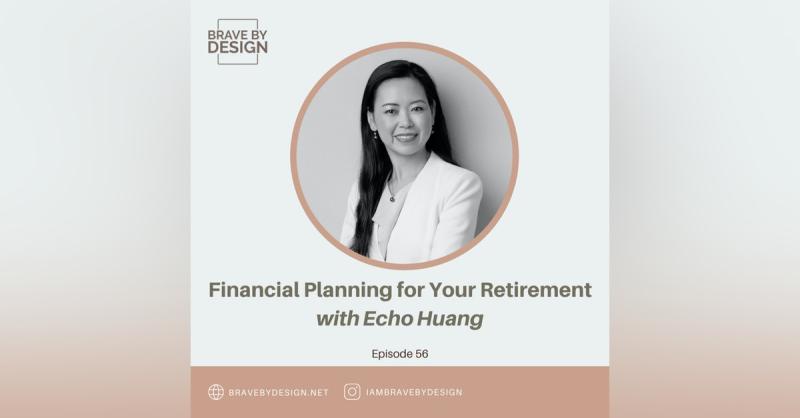You’re More Than Just a Number
Ever feel like you’re just a faceless number? You shouldn’t. And you shouldn’t be treated that way by someone who’s going to be handling your finances. In my last blog, I began to demystify the idea of wealth management so that you can better understand how to start on this path of engaging a wealth manager should you opt to engage a professional financial advisor/planner. I presented some questions for you to ponder and I pointed out 4 common problems found in personal finances.
If you choose to use a financial advisor or wealth management professional, they will want to meet with you. I certainly would! Today, I want to walk you through how I conduct my initial client meetings and what we would be discussing. Basically, I want to get to know you. This first meeting is what I call the Discovery Meeting.
Gathering Data about Your Values and Priorities
During this Discovery Meeting, I start of by asking a few questions, such as: “What is your earliest money memory?” “How do you discuss and manage finances with your spouse?” “What activities would you like to do now if you just learned that you have one year to live?” “What does financial independence look like for you?” I want to learn about your values and priorities. Perhaps this isn’t what you would think of as first questions, but it’s important to understand these points.
The goal of a discovery meeting is to understand the client in order to propose a plan that offers them choices.
After gathering data about your net worth, we would discuss your lifestyle. I want to know more about you: how you live, how you play, how you save.
Discovering Patterns by Categorizing and Tracking Earning and Spending
Once we have discussed the income side of your life, we then move on to discussing your expenses. Analyzing credit card statements can capture spending patterns, especially if you use them a lot. We would then look at your checking and savings account balances and debts, including mortgage accounts.
Most people seem to find spending patterns the most tedious part. They don’t want to bother with the trouble of tracking their expenses. Regardless what tools you use to create a budget and track expenses, doing this exercise of categorizing expenses into two major categories, essential expenses and discretionary expenses, provides a clearer picture of your financial health. Then, creating subcategories will provide clarity on how you earn income and how you spend money. After three months of tracking expenses, you will have much better sense of which areas you can improve to increase savings.
Where do you want to go and when?
Even if a client is clear about their goals and their strengths, they are likely not a “do-it-yourselfer.”
Most successful and intelligent people I meet don’t want to have to put in more than 10-20 hours a year into their wealth management. Think about it—you don’t paint your house; you hire that out. It’s not that you don’t know how to paint; it’s that if you are earning $300,000 a year in a job that involves equity compensation, such as stock options, it’s probably not worth your time to try to deal with painting your house.
It’s the same with wealth management, except the financial markets and tax laws change constantly. It’s probably not worth your time to try to deal with it on your own, especially if you don’t know how to maximize various benefits offered by your employer.
What were the best and worst financial decisions you ever made?
This question is designed to give me an understanding of a client’s money story. Remember Violet from my last blog? She was the 50-year old executive who lost her job and was investigating the option of becoming a consultant. I asked her what were the best and worst financial decisions she ever made. Her answers provided great insights into her choices and how she might have learned lessons as a result of those choices. These answers helped me understand more about who she was and how she would make decisions in the future. The better I understood how she reacts, the better prepared I was to guide her along the way.
It would be the same for you if I was meeting you for the first time. I would ask you about your health, your job satisfaction, your career path, and where you think you’re going. I may ask you if you would be willing to delay retirement or reduce living expenses if the financial planning projection for the target retirement date does not look feasible. I also want to know your family longevity history and find out how you feel about longevity. I’ll ask you what you think you will do after retirement, because an early retiree may live thirty more years, and if that happens, you will need to find a passion in order to be engaged and stay healthy.
After gathering all the information we just discussed, you will able to look at scenarios that offer you choices between cutting back on expenses and early retirement or maintaining your current lifestyle but delaying retirement.
So as you can see, the Discovery Meeting is not so scary or complicated. It just requires honesty and transparency. Remember, the goal of a discovery meeting is for a financial advisor to learn more about you in order to propose a plan that offers you the best choices.
Next time, we will discuss Behavioral Biases and how they affect your financial life. Yes, most of us have them.
If I were to ask you, “What is your earliest money memory?” what would your memory look like? Where were you?
How old were you? Was it a good memory? Please share your memories with me below. Thanks!













